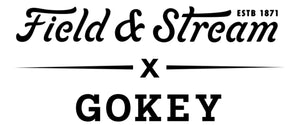Identifying Early Signs of Aging in Your Canine Companion:
Weight gain and a thinning hair coat can be symptoms of the endocrine disease hypothyroidism in canines. Symptoms may be difficult to pinpoint, as onset may be slow and non-specific. The most commonly reported symptoms dog owners notice include weight gain despite decreased appetite, thinning hair coat, frequent ear and skin infections, and low energy. Hypothyroidism appears to be a heritable condition in certain purebred dogs. Testing for hypothyroidism is not always straightforward: Unclear screening tests may require additional testing if hypothyroidism is suspected. The thyroid gland is a hormone-secreting gland located in the neck region of mammals. The thyroid gland plays an essential role in metabolism and cellular function. Hypothyroidism is characterized by a decreased availability of thyroid hormone; in canines, the primary cause is a process of gland self-destruction called ‘thyroiditis’, though in rare cases, thyroid dysfunction can be attributed to dietary imbalance, thyroid gland atrophy, or tumors impacting thyroid function. Canines very rarely suffer from the alternate condition of hyperthyroidism (i.e. overactive thyroid) - a condition more often seen in felines. Thyroiditis begins early in adult life, but symptoms often do not present until later in life - the middle adult years - after the majority of the thyroid gland has been destroyed. This slow progression of disease accounts for the subtle onset of symptoms. Congenital hypothyroidism can also occur though it is rare and results in dull, failure to thrive puppy’s with dwarf-like stature. (Congenital hypothyroidism will not be addressed in the remainder of this article as its cause and symptoms are not adult onset.) Sporting breeds which most frequently develop hypothyroidism include: setters, retrievers, sled dogs, sheepdogs, collies, beagles, and schnauzers. Any breed can potentially be affected. The OFA (Orthopedic Foundation of Animals) contains an extensive list of known affected purebreds. Hybrid dogs (i.e. "mutts) are less frequently diagnosed with hypothyroidism. Male and female dogs appear to be affected equally. Dogs that have a genetic tendency to develop hypothyroidism should be tested and removed from the breeding line if positive for markers of disease. Though skin and weight issues may be the primary reasons a pet owner or veterinarian raise concern and tests for thyroid disease, we know that other body systems are affected. Other symptoms of hypothyroidism may include behavior changes (increased irritability or aggression), uncoordinated gait, seizures, abnormal reproduction cycles and infertility, changes in facial structure or facial symmetry, lameness, low heart rate and heart disease, ocular changes, mental dullness, and exercise and cold intolerance. If your pet has some or many of the above listed concerns, a thyroid screening test may be recommended by your veterinarian. Unfortunately, diagnosing hypothyroidism is not straightforward in all cases. Thyroid function can be affected by other illness in the body. Thyroid hormone levels can fluctuate throughout the day, may be altered in response to certain medications, or can be unavailable for use due to thyroid hormone binding to other molecules. For these reasons, true hypothyroidism can be difficult to determine. When in doubt, or when a pet fits the symptoms of hypothyroidism despite a normal screening test, additional thyroid testing should be done. Hypothyroidism treatment will improve a pet's comfort and quality of life. Most pets can be managed with a once or twice daily thyroid medication called levothyroxine. Prognosis is good to excellent but will require lifelong supplementation. Pets tend to improve in energy level and mental alertness within a few weeks, while other systemic signs may take several months to see improvement. Regular monitoring is recommended to ensure proper dosing and maintenance of a therapeutic level of thyroid supplementation.
### Amanda Burow, D.V.M. (Dr. B), is a graduate of Iowa State University’s College of Veterinary Medicine. Dr. Burow’s patient list includes hunting dogs of all varieties, as well as several field trial dogs and full time sporting guide dogs. In addition to practicing general veterinary medicine, she has special interest in the areas of preventive care, emergency medicine, and dermatology. In her spare time, she enjoys being outdoors and on the lake, staying active, reading, and spending time with family and friends. Mud River is proud to share these tips from Dr. B with our customers. Keep in mind it is best to work with your local veterinarian to determine the needs for your animals.










